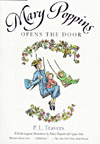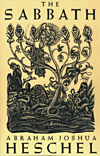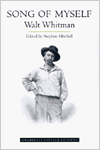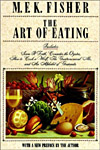
Mary Poppins
By P.L. Travers
The real Mary Poppins got lost when Hollywood turned her into a cream puff in 1964. Her name now conjures up the image of a perfect nanny—a woman who sweetly charms and pacifies her charges. But children who read the Pamela Travers series know that Mary Poppins is, in fact, opinionated, sharp of tongue, and not always nice. That's not a problem since she is a good egg at heart and, much more important, a witch with a magic satchel and knowledge of secret doorways into the many enchanted places hidden in plain sight throughout London. (Sound familiar?)
Travers had a light touch for the supernatural: newborn babies who could converse with the wind, sunbeams, and birds; an ancient candy-store owner whose self-regenerating fingers are made of barley sugar. But Mary Poppins herself was the best magic of all. A free spirit who comes and goes as she sees fit? A well-traveled person with a fabulous past? A not unattractive but ordinary-looking woman who adores her own appearance and whose self-regard is as unassailable as the Himalayas? She was all that and more. I never wanted Mary Poppins to be my nanny. I wanted to be her when I grew up.
By P.L. Travers
The real Mary Poppins got lost when Hollywood turned her into a cream puff in 1964. Her name now conjures up the image of a perfect nanny—a woman who sweetly charms and pacifies her charges. But children who read the Pamela Travers series know that Mary Poppins is, in fact, opinionated, sharp of tongue, and not always nice. That's not a problem since she is a good egg at heart and, much more important, a witch with a magic satchel and knowledge of secret doorways into the many enchanted places hidden in plain sight throughout London. (Sound familiar?)
Travers had a light touch for the supernatural: newborn babies who could converse with the wind, sunbeams, and birds; an ancient candy-store owner whose self-regenerating fingers are made of barley sugar. But Mary Poppins herself was the best magic of all. A free spirit who comes and goes as she sees fit? A well-traveled person with a fabulous past? A not unattractive but ordinary-looking woman who adores her own appearance and whose self-regard is as unassailable as the Himalayas? She was all that and more. I never wanted Mary Poppins to be my nanny. I wanted to be her when I grew up.

The Sabbath
By Abraham Joshua Heschel
This slim, poetic volume of practical theology opened my heart to the practice of Judaism. Nearly 20 years ago, my then fiancé and I read it aloud to each other, a few pages every Friday night, as we started to experiment with our own Shabbat table rituals—lighting candles, pouring a cup of wine, breaking bread, singing blessings.
Rabbi Heschel explains the Sabbath as the source and crux of Jewish spirituality: "There are no two hours alike. Every hour is unique and the only one given at the moment, exclusive and endlessly precious. Judaism teaches us to be attached to holiness in time…to learn how to consecrate sanctuaries that emerge from the magnificent stream of a year." The Sabbath is one such sanctuary, indeed a weekly "cathedral" raised up in my dining room, in my family, in my heart—but only if and when I consecrate it through my intention, words, and deeds.
By Abraham Joshua Heschel
This slim, poetic volume of practical theology opened my heart to the practice of Judaism. Nearly 20 years ago, my then fiancé and I read it aloud to each other, a few pages every Friday night, as we started to experiment with our own Shabbat table rituals—lighting candles, pouring a cup of wine, breaking bread, singing blessings.
Rabbi Heschel explains the Sabbath as the source and crux of Jewish spirituality: "There are no two hours alike. Every hour is unique and the only one given at the moment, exclusive and endlessly precious. Judaism teaches us to be attached to holiness in time…to learn how to consecrate sanctuaries that emerge from the magnificent stream of a year." The Sabbath is one such sanctuary, indeed a weekly "cathedral" raised up in my dining room, in my family, in my heart—but only if and when I consecrate it through my intention, words, and deeds.

Song of Myself
By Walt Whitman
This long poem is a list of everything Whitman loved and everything he challenges us to love: himself, ourselves, humanity, America, music, animals, rivers, city life, work, sex, God, freedom, even the grass beneath his feet, which he describes variously as "…the flag of my disposition…the handkerchief of the Lord…the beautiful uncut hair of graves." There's something almost adolescent about Whitman's paean to the things that were and remain good about America, and I mean that as a compliment to the buzz and punch of his passion. I own a pocket edition and dip into it occasionally, like a box of chocolates, for quick energy and a reminder of how grand it is to read words that cause the soul to give thanks.
By Walt Whitman
This long poem is a list of everything Whitman loved and everything he challenges us to love: himself, ourselves, humanity, America, music, animals, rivers, city life, work, sex, God, freedom, even the grass beneath his feet, which he describes variously as "…the flag of my disposition…the handkerchief of the Lord…the beautiful uncut hair of graves." There's something almost adolescent about Whitman's paean to the things that were and remain good about America, and I mean that as a compliment to the buzz and punch of his passion. I own a pocket edition and dip into it occasionally, like a box of chocolates, for quick energy and a reminder of how grand it is to read words that cause the soul to give thanks.

The Art of Eating
By M.F.K. Fisher
Mary Frances Kennedy Fisher's warmth and wit shine in her more than 20 books, most of which are about the pleasures of the table. Responding to questions about why her subject was food rather than loftier topics, Fisher wrote, "It seems to me that our three basic needs, for food and security and love, are so mixed and mingled and entwined that we cannot straightly think of one without the others." For Fisher, who died in 1992, eating was a metaphor for everything that is most important in life, and she ate reverently, ravenously, and with exquisite attention to what was on her plate. She is often credited with inventing the genre known as food writing, but this prose master defies categorization. I should only write so well, eat so well, live so well.
By M.F.K. Fisher
Mary Frances Kennedy Fisher's warmth and wit shine in her more than 20 books, most of which are about the pleasures of the table. Responding to questions about why her subject was food rather than loftier topics, Fisher wrote, "It seems to me that our three basic needs, for food and security and love, are so mixed and mingled and entwined that we cannot straightly think of one without the others." For Fisher, who died in 1992, eating was a metaphor for everything that is most important in life, and she ate reverently, ravenously, and with exquisite attention to what was on her plate. She is often credited with inventing the genre known as food writing, but this prose master defies categorization. I should only write so well, eat so well, live so well.




